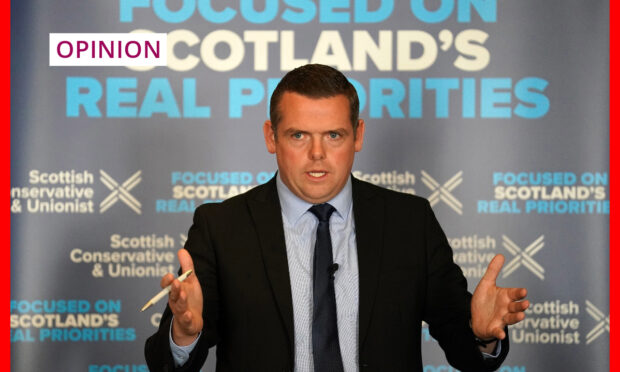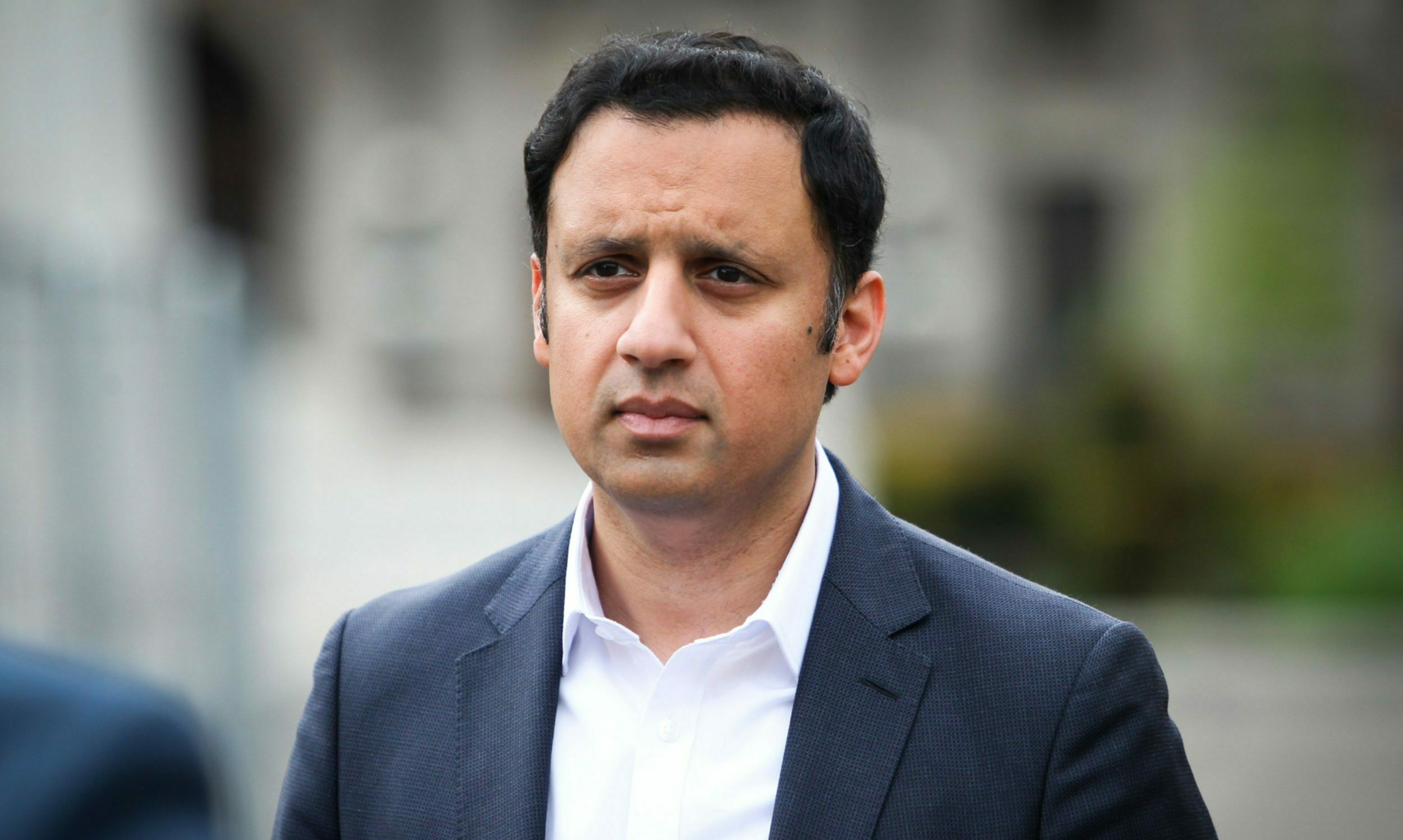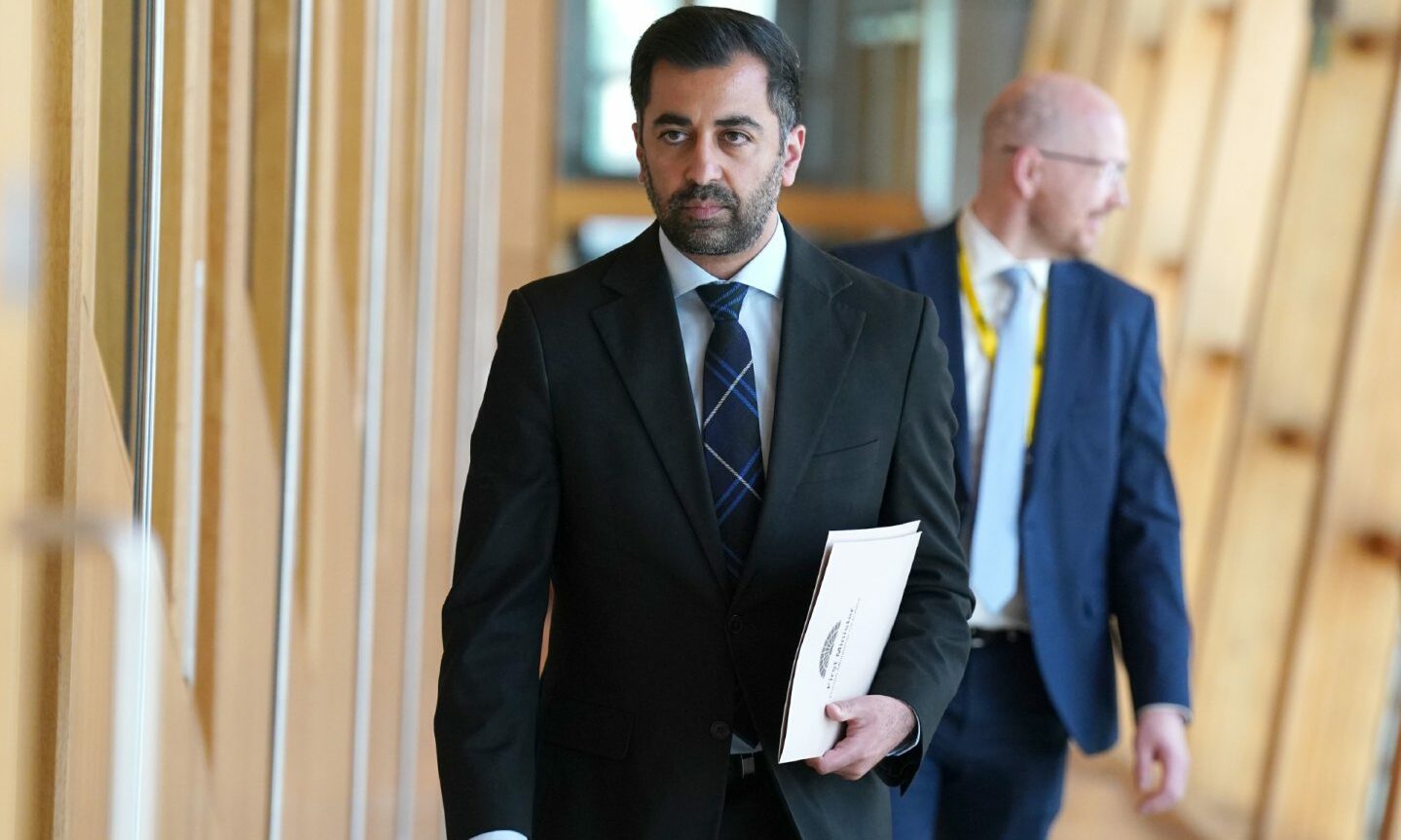There were two things of particular note about Douglas Ross’ speech in Edinburgh this week.
The first was the subject. Economic growth has been a proscribed topic for decades in Scotland. Indeed, since the dawn of devolution, the Scottish Parliament has been almost wholly focused on social policy issues, with the economy left as an afterthought, if thought about at all.
This weighted perspective is not without its successes, but it is also not without its considerable costs.
Scotland’s GDP growth has been significantly lower than the rest of the UK over the last decade.
Productivity has been flatlining for years. Demographic challenges, particularly an ageing population, are getting markedly more severe.
We have now even reached the farcical point where parties such as the Scottish Greens can question the very legitimacy of economic growth as a goal of government and not be laughed out of the room.
‘Ross and Tories deserve credit’
This failure to deliver serious and sustained economic growth is a tragedy told in lost jobs, lost futures and lost opportunities – not to mention lost funding for public services.
Ross and the Scottish Conservative Party do not have all the answers to Scotland’s growth conundrum – far from it – but they deserve credit for actually raising the issue.
But the second thing of note about Ross’ speech is actually even more important.
Rather than talk about identity, as has been so often his wont in recent years, Ross chose instead to talk about ideas – and that marks a significant shift in the direction of Scottish politics.
For the last decade or more, Scotland has been living in an age of identity. It has been the driving issue for Scottish parties and Scottish voters.
It has been the fig leaf that has maintained the SNP’s respectability in the minds of voters despite mismanagement, scandal and failure. It has been the Jenga puzzle that has collapsed the Labour Party’s once towering authority in Scotland.
And it has given great succour to the Scottish Conservative Party, allowing them to recast themselves as the defenders of the Union and to supplant Scottish Labour in the process.
Ross’ speech – followed swiftly by one from Scottish Labour’s Anas Sarwar on a similar theme – shows that the days of identity politics in Scotland are numbered, if not yet finished.
‘Age of ideas’
With the Supreme Court ruling last year effectively closing the issue for a generation, identity – the side of the constitutional divide on which you choose to fall – is becoming an issue of diminishing importance, except among a minority of the fanatics who plague both sides of the constitutional divide.
Instead, we are now entering an age of ideas.
With new battle lines drawn Ross, like any good general, has chosen his fighting field – economic growth – well.
I have previously argued in these pages that in this new era the Scottish Conservatives should pivot to being a low-tax, growth-focused party, and I am pleased to see this process is now underway.
As was mentioned earlier, the SNP government’s record on economic growth is – while not necessarily worse than previous administrations – still extremely poor.
Equally, with First Minister Humza Yousaf seemingly still held hostage to the Scottish Green Party, the government’s economic record may enter a tailspin. This is natural territory for the Scottish Conservatives to fight on, and it should serve them well.
But of greater concern to the SNP than the substance of the economic fight will be the wider issue of the direction of the political debate.
Few can doubt that the age of identity over the last decade has served the SNP phenomenally well.
But, after 16 years in government, with a weak leader and an even weaker agenda, the coming age of ideas is unlikely to be so forgiving.













Conversation